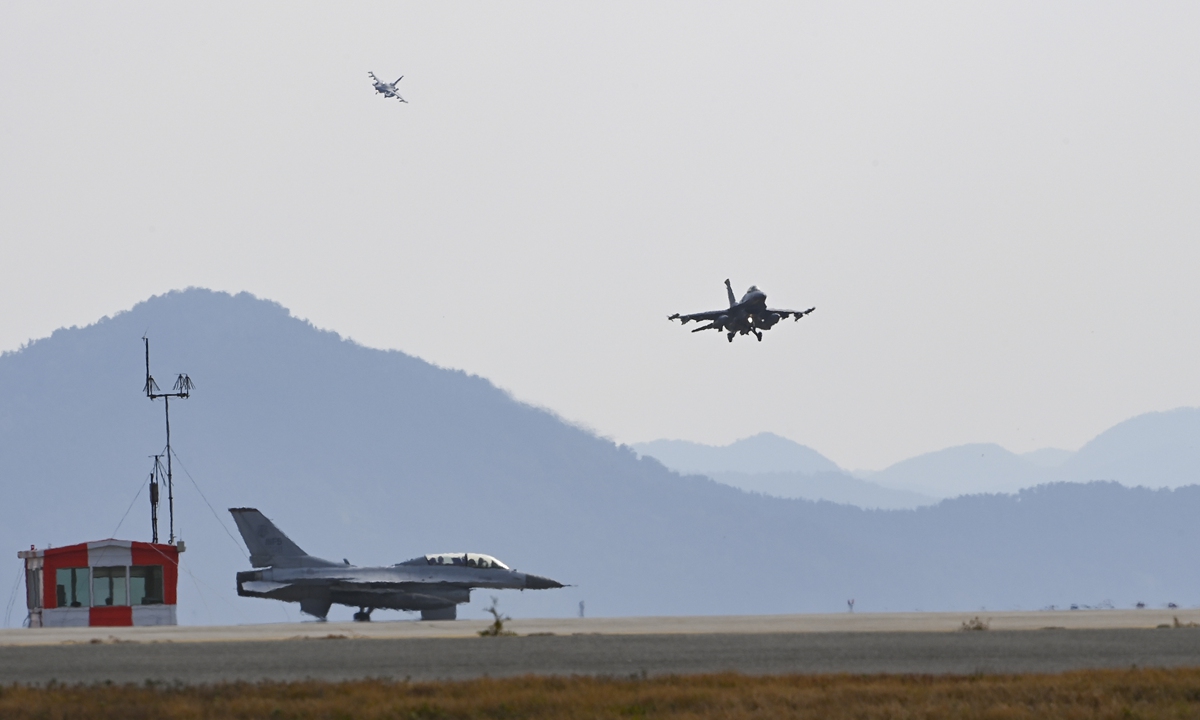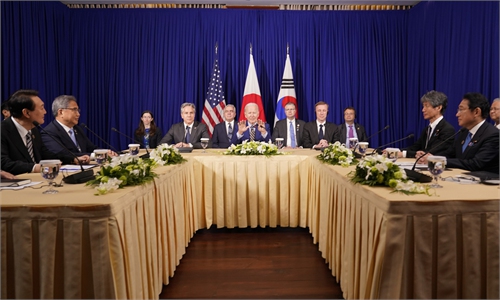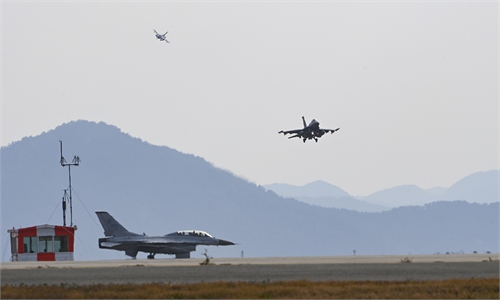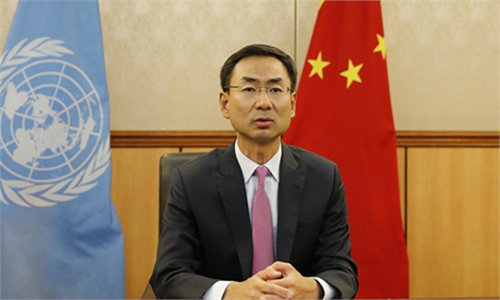Korean Peninsula tension rises after US military drill provocations, NK missile launch

In this handout image released by the South Korean Defense Ministry, South Korean Air Force KF-16 fighter jet (left, bottom) and US Air Force F-16 fighter jets are seen during the "Vigilant Storm" US-South Korea joint aerial drill at Gunsan Air Base on October 31, 2022 in Gunsan, South Korea. Photo: VCG
The situation on the Korean Peninsula has escalated after the US and South Korea upgraded joint military drills and North Korea launched an intercontinental ballistic missile (ICBM) in response, experts said, urging all parties to observe restraint, especially after North Korea's foreign minister refuted the UN chief's criticism of the latest missile launch.The UN Security Council is set to discuss North Korea on Monday, at the request of the US. Ahead of the talks, members of the Group of Seven nations said the Security Council must take "significant measures," including imposing sanctions on the country. China and Russia have opposed the previous moves by the US and its allies to toughen unilateral sanctions.
North Korea said that it conducted a "test firing of a new kind" of ICBM, the Hwaseong-17, on Friday, claiming it was launched from Pyongyang International Airfield and flew a distance of 999.2 kilometers. The KCNA also posted multiple images of North Korean leader Kim Jong-un and his wife and daughter, who reportedly oversaw the test launch.
The latest confrontation over the Korean Peninsula shows an escalating situation, and the international community should also know that the root reason for the current tension is the US' increasing pressure on North Korea, Lü Chao, an expert on the Korean Peninsula issue at the Liaoning Academy of Social Sciences, told the Global Times on Monday.
Lü noted that the US has organized several military drills of greater scale with its allies South Korea and Japan, and with more new weapons and aircraft carriers being involved, which has made North Korea feel more unsafe and having to give stronger responses.
The expert said that simply criticizing North Korea without taking the US' pressure into consideration would be unfair.
For example, at the end of October, the US and South Korea conducted one of their largest joint military air drills, with hundreds of warplanes from both sides staging mock attacks 24 hours a day for a week, Reuters reported.
In response, the North Korean Foreign Ministry issued a statement on KCNA demanding a halt to the drills, and said, "The situation in the Korean Peninsula and its vicinity has entered a serious confrontation phase of power for power again, due to the ceaseless and reckless military moves of the US and South Korea."
According to information released from North Korea, the test launch on Friday was successful, and North Korea also wanted to boost domestic confidence and show the US that it has the capability to hit US territory, Lü said, expressing worries of a deteriorating situation on the Korean Peninsula, as the US and North Korea may escalate the tension and choose to take a tougher stance against each other.
Amid the tense situation, observers warned all parties to observe restraint to avoid further escalation and to solve the Korean Peninsula issue via political negotiations.
"A peaceful and stable Peninsula and keeping the situation from deteriorating and escalating is in the common interests of the entire international community. We hope all parties will stay committed to seeking a political settlement, and address each other's concerns in a balanced way through meaningful dialogue," Chinese Foreign Ministry spokesperson Mao Ning told a press conference on Friday, noting that China is following the developments on the Korean Peninsula.
Some experts reached by the Global Times expressed opposition to imposing more sanctions on North Korea, as such a move may do no good to the strained situation.
The US should take more responsibility for the current situation in the Korean Peninsula and the UN should not impose unilateral sanctions on North Korea, Lü said.
Also, previous sanctions on North Korea have brought no new opportunities for solving the issues. Further sanctions may lead to instability in North Korea's economy as well as a livelihood and humanitarian crisis - this would make the Korean Peninsula issue more complicated, Lü said, noting that the key to solving the problem is for the US to change its attitude and show sincerity to North Korea.




